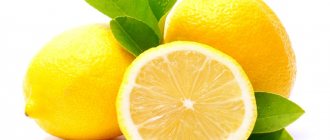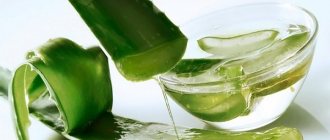Composition and value of kombucha
Medusomycete “lives” in a nutrient solution of water, tea leaves and sugar. It receives its medicinal properties as a result of the vital activity of microorganisms. First, yeast fungi decompose sucrose into alcohol and carbon dioxide, then acetic bacteria begin to work.
The result is a drink with a complex, not fully understood chemical composition. It is known to contain:
- organic acids;
- alcohol;
- Sahara;
- microelements;
- alkaloids;
- vitamins;
- enzymes;
- lipids;
- purine;
- antibiotic medusin;
- pigments.
Kombucha is a probiotic and has the following properties:
- antioxidant;
- immunostimulating;
- antimicrobial;
- bactericidal;
- antibiotic;
- anti-inflammatory;
- painkillers;
- tonic.
When taken correctly, kombucha has a beneficial effect on all organs and systems, although it has contraindications. But only a drink that has been prepared for at least 5 days has a healing effect. To treat most diseases, 7-10 days are used.
Important! A young infusion of kombucha is nothing more than a cool, low-alcohol drink, and a sweet one at that. It will not bring any benefit, but it can do harm.
Treatment of colitis
Inflammation of the colon is called colitis. There are acute and chronic colitis. Acute colitis is most often caused by pathogenic microorganisms: dysentery bacilli, salmonella, staphylococci, streptococci. Severe diarrhea, vomiting, flatulence, and increased body temperature appear.
In the presence of foci of infection in organs associated with the intestines (gallbladder, pancreas), abuse of spicy and indigestible foods, and alcohol, chronic colitis develops.
Manifestations of chronic colitis are varied and depend on the stage of severity and extent of the process. During exacerbation, poor appetite, general malaise, nausea, diarrhea, alternating with constipation are observed. Mucus secretion. The pain is often cramping in nature and radiates to the lower back or groin area. Chronic colitis is characterized by relapses, alternating exacerbations with periods when the signs of the disease almost completely disappear. Self-medication is unacceptable, since excessive use of antibiotics leads to dysbiosis and increased inflammation.
Prevention of chronic colitis is, first of all, timely and high-quality treatment of acute intestinal infections.
Kombucha infusion is used for chronic colitis, which is not accompanied by fever, the appearance of blood and mucus in the stool, or the absence of diarrhea. It stimulates the body's protective functions, normalizes microflora, delays the development of infectious processes in the intestines, cleanses it of undigested food residues, fermentation products in which putrefactive bacteria multiply. By activating the work of the intestines, it prevents its overload. The beneficial effects of medusomycetes in combination with diet and herbal medicine. Here are several types of fees that effectively help with colitis.
| Anise (fruit) | 20,0 |
| Common fennel (fruit) | 20,0 |
| Cumin (fruit) | 20,0 |
| Peppermint (leaves) | 40,0 |
Take 0.5 cups as a warm infusion after meals.
| Common fennel (fruit) | 15,0 |
| Calamus marsh (rhizome) | 15,0 |
| Valerian officinalis (root) | 20,0 |
| Peppermint (leaves) | 20,0 |
| Chamomile (flowers) | 30,0 |
Take 0.5 cups of liquid as a warm infusion after meals.
| Chamomile (flowers) | 10,0 |
| Common fennel (fruit) | 10,0 |
| Cumin (fruit) | 10,0 |
| Gray alder (infructescence) | 10,0 |
| Peppermint (herb) | 10,0 |
| Marshmallow (root) | 10,0 |
| St. John's wort (herb) | 10,0 |
| Great plantain (leaf) | 10,0 |
| Sandy immortelle (flowers) | 10,0 |
| Cassia aculifolia (leaves and fruits) | 10,0 |
Take 1/2-1/3 cup of infusion 3 times a day before meals for chronic spastic colitis.
| Swamp grass (grass) | 10,0 |
| Calendula officinalis (flowers) | 10,0 |
| Chamomile (flowers) | 10,0 |
| St. John's wort (herb) | 10,0 |
| Gray alder (infructescence) | 10,0 |
| Peppermint (herb) | 10,0 |
| Great plantain (leaf) | 10,0 |
| Marshmallow (root) | 10,0 |
| Common yarrow (herb) | 10,0 |
| Cumin (fruit) | 10,0 |
Take 1/2-1/3 cup 3 times a day before meals for chronic nonspecific ulcerative colitis.
Alternate taking herbal infusion with taking kombucha infusion.
Is kombucha good for the stomach?
The effect of kombucha on the stomach is due to its composition. If there are no serious diseases, and the infusion is used for preventive purposes, then the effect will be extremely positive.
A drink made from medusomycetes is also useful in treating the stomach. But taking it yourself is risky; the infusion contains too many components that irritate the mucous membrane. Of course, their effect can be neutralized by other products, but not completely.
Kombucha should only be used to treat stomach problems after consulting a doctor. Perhaps the doctor does not believe in the healing power of kombucha, but he should not give an outright ban on taking the infusion.
How does kombucha affect the stomach?
The effect of medusomycete infusion on the stomach is ambiguous and has not been fully studied. Perhaps this is why most sources point to the beneficial effects of the symbiont on the gastrointestinal tract as a whole, and describe in detail its effects on the intestines and other organs. They try to carefully bypass the stomach. Or they give very little vague information.
An infusion of medusomycetes stimulates the secretion of gastric juice, therefore it is often recommended for gastrointestinal diseases aggravated by a decrease in secretory function. But not during the period of exacerbation.
With increased stomach acidity, kombucha, on the contrary, can be harmful. It enhances secretory function. As a result, hydrochloric acid, which is already released in excess quantities and irritates the gastric mucosa, will become even greater, which can lead to an ulcer.
Kombucha contains organic acids and alcohol that irritate the stomach walls. On the one hand, this improves digestion and intestinal motility, on the other, it increases inflammation.
Opinions about the effect of kombucha on the digestive system are controversial
But not everything is so simple. Kombucha has properties to relieve inflammation and pain, it even heals wounds. It contains the antibiotic medusin, which can treat some forms of ulcers.
In addition, kombucha removes waste and toxins from the body, which can be both a product and a cause of gastrointestinal diseases. It has an immunostimulating effect, which in itself accelerates recovery and strengthens the body's resistance.
Kombucha improves microflora and activates cell regeneration. This is of paramount importance in the treatment of gastrointestinal diseases, especially those associated with damage to the mucous membrane.
Important! The beneficial properties of kombucha for the stomach are undeniable, but it contains many substances and compounds that irritate the mucous membrane and can lead to an exacerbation of the disease. It is better to take it under the supervision of a doctor.
Contraindications for use
The presence of many useful components, vitamins and microelements in the mushroom does not make it a universal remedy for getting rid of any diseases. In addition to the positive effect on the human body, it can provoke a deterioration in health if the patient’s pathogenesis includes the following diseases:
- Ulcerative diseases of the digestive system, especially in the acute stage.
- The presence or prerequisites for the development of diabetes mellitus, since the drink contains a huge amount of sucrose.
- Fungal diseases in the body of different stages and locations.
- Allergic reactions to the constituent components of kombucha.
- Bronchial asthma.
- Overweight with a diagnosis of obesity, due to excessive amounts of nutrients and calories in the drink.
As you can see, the positive characteristics of drinking do not indicate its harmlessness to human health. Before drinking mushroom kvass, you must undergo an examination at a medical institution to determine an accurate diagnosis, and only after consulting with your doctor, include the drink in your diet.
Check with your doctor before drinking kombucha
Is it possible to drink kombucha for stomach diseases?
If you already have stomach diseases, a drink made from medusomycetes can be taken independently at low or normal acidity, and only during the period of remission. In other cases, you should definitely consult with an experienced gastroenterologist. If he does not know about the medicinal properties of medusomycetes, or does not believe in them, he should ask for advice from another doctor.
Important! In any case, you cannot treat stomach diseases with kombucha on your own.
With increased stomach acidity
Kombucha for gastritis with high acidity and other gastrointestinal diseases associated with increased secretory function should not be taken at all, or should be drunk under the supervision of a doctor. This means that when everything is going well, you need to see a specialist at least once a week, unless more frequent visits are recommended. He is informed about all changes in condition, and not just when pain appears.
In this case, kombucha must be drunk diluted with water or with additives - infusions of medicinal herbs, honey. You cannot select additional components yourself, nor can you change their proportions or dosage.
Honey is used especially carefully as an additive. This is a biologically active substance, and quite strong. It can be beneficial or cause significant harm to the body. On the one hand, honey neutralizes the effect of acids contained in the medusomycete infusion, on the other hand, it is itself an irritant. In addition, it is a rather strong allergen, and intolerance manifests itself in various forms, including cumulative, when a person gradually becomes ill.
Important! There is only one conclusion - you can take kombucha for gastrointestinal diseases with high acidity only if the patient has found a specialist who thoroughly understands the issue. In all other cases, you need to turn to other means and forget about kombucha.
Competent consultation with a specialist before drinking kombucha is mandatory.
For gastritis
Kombucha can be drunk for gastritis with low or neutral acidity during remission. During an exacerbation, coordinate an appointment with a doctor; it is quite possible that he will include it in therapy. But you definitely need to consult, since the drink tends to enhance the effect of herbs and some medications.
With atrophic gastritis, it is better to forget about kombucha. Unless, of course, the patient has found an exceptionally competent doctor, or is participating in a program to study the effect of medusomycetes on the body.
The fact is that atrophic gastritis is a very unpleasant form that can not only degenerate into an ulcer, but also lead to the formation of tumors. The disease is associated with severe pain and is expressed in thinning and dystrophic changes in the mucous membrane. Doctors once again try not to disturb her with gastroscopy and other studies, so the first manifestations of oncology may go unnoticed.
For stomach ulcers
Usually, kombucha is strictly contraindicated for stomach ulcers. This is due to the irritating effect of the compounds contained in the infusion. They can increase inflammation of the mucous membrane; it is difficult to imagine what alkaloids, organic acids, and other aggressive compounds will do to a wound, which is an ulcer.
True, there are several “buts”. Kombucha has wound healing, antibiotic, anti-inflammatory and other properties that promote ulcer scarring. So is it worth exposing her to substances with the opposite effect in the hope that the result will be positive?
You should not drink kombucha made at home if you have an ulcer. But there is an antibiotic called medusin, which destroys the bacterium Helicobacterpy lori, which is often the cause of the disease. Kazakh scientists have patented the drug Medusomycetin, obtained by extracting substances from kombucha, which is effective in treating ulcers. Research on the antibiotic continues.
For duodenal ulcer
The ban on taking kombucha for duodenal ulcers is due to the same reasons as for stomach damage. You can drink the infusion only during the period of remission on the recommendation of a doctor.
Is it possible to eat mushrooms for gastritis?
Mushrooms are among the most balanced and nutritious foods. They contain proteins and amino acids. By consuming them, a person is saturated with energy for the whole day. They are not high in calories, but they perfectly satisfy hunger. They contain many vitamins and microelements, phosphoric acid, which are so necessary for human life. For a healthy body, this is simply an indispensable food product.
Nutrition during gastritis prohibits eating food that is difficult for the body to digest, and mushrooms are just such a product.
Nutrition during gastritis prohibits eating food that is difficult for the body to digest. And mushrooms are just such a product. They stimulate the production of gastric juice. Why is it better to refuse them? Firstly, they take a long time to digest, and the disease begins to worsen. Secondly, they contain an excessive amount of chitin, which is almost not absorbed by the body and slows down the absorption of other beneficial substances. Thirdly, they sometimes contain harmful toxins that they absorb from the environment.
Are there any exceptions? If your gastritis is not aggravated, then eating mushrooms is allowed. But only in small quantities. The ideal option would be broth. After it is ready, the mushrooms should be removed from the pan. If you have low acidity, you can eat them periodically, but in small doses. It is strictly forbidden to eat it fried. During an exacerbation of the disease, you should forget about them. To completely get rid of gastritis, you need to take a rehabilitation course. Doctors also recommend taking one stomach pill before eating. This will help you digest and absorb food better.
Is it possible to take mushrooms for gastritis? Only the attending physician can tell you. Do not neglect his recommendations, strictly follow them. Then a disease such as gastritis will disappear once and for all.
How to drink kombucha with benefits for the stomach
Most of the world's population suffers from stomach diseases. They are well studied and can be treated with medications and herbs. Kombucha is not the last hope here. If there is the slightest doubt that taking the infusion is safe, you should refuse it.
For stomach diseases, drink kombucha only diluted, often in combination with herbs. Sometimes honey is added to the drink.
Recipes
Usually, to treat stomach diseases, kombucha is taken together with herbal infusions. The recipe must be agreed upon with your doctor, since the disease progresses differently in all people. In addition, some plants enhance the secretory function, others slow it down, and have properties that both promote the recovery process and aggravate the painful condition.
Sometimes kombucha is prepared without using tea leaves - using medicinal herbs. To do this, 100 g of the collection is steamed with 1.5 liters of boiling water and left overnight. Sugar is added only in the morning, completely dissolving in the liquid. Pour in the medusomycete and leave for at least 7 days.
Kombucha can be combined with herbal infusions
The finished drink, infused for 7-9 days, is taken for preventive purposes 1-2 times a year. Course – 1.5-2 months. Dosage – 100 ml at a time. Breakfast regimen - half an hour before meals;
- lunch – 60 minutes before or after a meal, 1-2 hours later;
- dinner - 3 hours after eating or 30-60 minutes before bedtime.
Important! Kombucha on an empty stomach is a big burden for the stomach, especially a sick one. You should consult your doctor about the possibility of consuming it before meals so as not to provoke an exacerbation.
Recipe 1 with herbal mixture
You will need a glass of water and a ready-made 7-9-day infusion of kombucha, 2 tbsp. spoons of honey, 2 tbsp. l. herbal collection. To prepare it, medicinal plants are taken in the following proportions:
- cinnamon rose hips – 4;
- dried cucumber – 4;
- fennel fruits – 3;
- calendula flowers – 3;
- licorice root – 2;
- cyanosis grass – 2;
- coltsfoot flowers – 1;
- nettle – 1;
- yarrow – 1;
- peppermint – 1.
Preparation:
- The herbs are crushed and mixed.
- Separate 2 tbsp. l. collection, pour boiling water.
- Cook for 10 minutes.
- They wrap it up and insist.
- After cooling, the mixture is filtered.
- Add honey and kombucha.
Drink 1 glass per day, in 3 doses (70 ml), 40 minutes after meals.
Recipe with centaury, calamus and watch
To prepare the mixture you will need a glass of water and 7-9 days of kombucha, 2 tbsp. l. medicinal collection, 1 tbsp. l. honey Herbs are taken in the following ratio:
- centaury – 2;
- calamus root – 2;
- three-leaf watch – 2;
- chopped orange peel (not zest!) – 2;
- wormwood – 1.
Preparation of the infusion is the same as described above. Only the herb collection is boiled for 15 minutes.
Take 1/2 cup an hour before meals. Duration of treatment – 3 months.
Admission rules
The fermented infusion must be diluted with water or a decoction of herbs. You need to start taking it with a dose not exceeding 100 ml, unless the prescription provides for an even smaller one.
Heating the drink enhances its properties, cooling it makes the effect prolonged. If there are no special instructions in the recipe, the infusion should be at room temperature.
Add honey to kombucha carefully. On the one hand, it enhances bactericidal and antibiotic properties, on the other, it irritates the mucous membrane and can serve as an allergen.
Important! Kombucha should only be prepared with sugar. Honey, as a result of complex processes occurring during the infusion of kombucha, makes the drink harmful for internal use.
Basic Recipes
It is recommended to drink the drink 1.5 hours before meals.
Kombucha with honey for high acidity
The drug is contraindicated for gastritis with increased acidity of gastric secretions. However, honey can neutralize the acidity in the drink.
It is recommended to use summer meadow honey with the following main honey plants:
- Clover. It is characterized by a general strengthening and tonic effect.
- Thistle and cornflower have an excellent diuretic effect.
- Crescent has a wound-healing effect and will relieve inflammation.
This honey is dark yellow in color and has a unique aroma.
To prepare, you need to dissolve 1 tbsp. a spoonful of honey in 200 ml of warm tea kvass. A drink with honey will relieve the feeling of heaviness and abdominal pain within 2 days after its use.
The drink should be taken 400-600 ml per day according to the following scheme:
- In the morning: 200 ml half an hour before breakfast.
- During the day: 200 ml 2 hours before lunch.
- In the evening: 3 hours before dinner 200 ml.
The product should be prescribed with caution to people with hypersensitivity to honey.
Tea kvass with low acidity
To improve treatment results, it is recommended to add various infusions of medicinal herbs to kvass.
An infusion of mint and centaury has proven itself well. To prepare, pour 20 g of centaury herb and 80 g of mint leaves into 200 ml of boiling water. Leave for 20 minutes in a steam bath. Drink 100 ml of medicine 3 times a day half an hour before meals. Duration of treatment is 1-4 months. If necessary, treatment can be repeated.
A drink made from kombucha has a positive effect on the functionality of the digestive organs and the entire cardiovascular system. It is recommended to use the product during periods of remission of gastritis or for preventive purposes.
The healing properties of kombucha tincture are difficult to overestimate. Kombucha is useful for gastritis, colitis, pancreatitis, heartburn, nausea, stool disorders, damage to the natural intestinal microflora, irritation of the gastric mucosa and bloating. It is used not only for diseases of the gastrointestinal tract, but it is more than effective against these diseases. You should not perceive tea kvass as a panacea for all the troubles associated with gastritis; you need to perceive the drink as a means that helps basic medications act for the benefit of the body.
Restrictions and contraindications
Kombucha infusion is prohibited for independent use during an exacerbation of all gastrointestinal diseases. If you have an ulcer with any secretory function or gastritis aggravated by high acidity, you should not take it. An exception is a doctor’s prescription together with a specially selected collection of medicinal herbs.
You should not drink kombucha infusion if you have the following diseases:
- hypotension;
- diabetes;
- some fungal infections;
- alcoholism.
In some cases, taking kombucha is strictly prohibited
Tibetan milk mushroom
This product is recommended for use by people with duodenal problems and stomach ulcers. It also has a beneficial effect on the entire body. But in order for the mushroom to be effective in treating stomach diseases, it must be taken correctly. It is recommended to drink the drink thirty minutes before meals and 2 hours after eating, 100 ml, that is, twice a day.
It is most effective to drink kefir based on this mushroom, which is not difficult to prepare even for an inexperienced cook. As people who are treated with this particular mushroom say, relief is noticeable after just a week of taking the healing drink. If you have a stomach ulcer, it will take at least a month and a half to get rid of the symptoms of the disease. Before starting treatment with chaga, you need to consult a doctor.
As we can see, chaga and other mushrooms can be effective in treating gastrointestinal diseases caused by various diseases, including cancer, ulcers and gastritis with high acidity. The effectiveness of mushrooms lies in the beneficial properties of these products.










